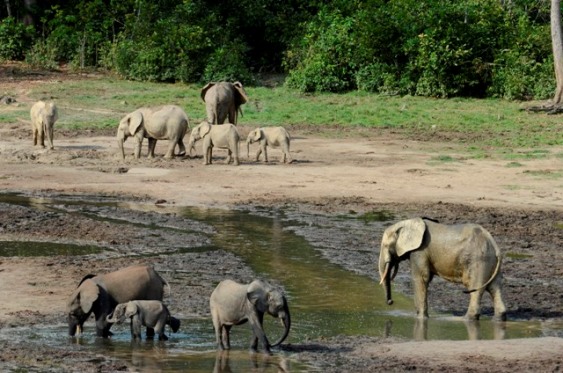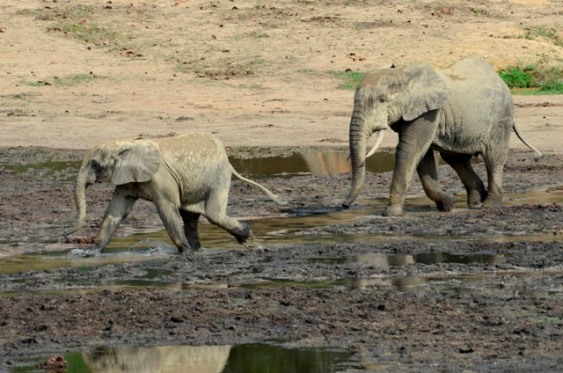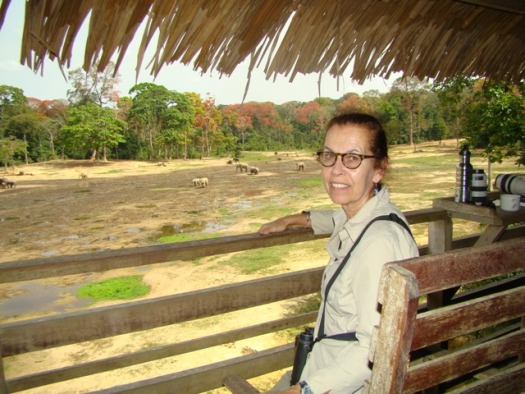
We all stood silently for many hours as we watched dozens of African forest elephants carry on during a beautiful uninterrupted day while in the Central African Republic. That was in January. Now, the world has learned these past few weeks that elephants in CAR are being slaughtered as the country faces a violence-ridden power struggle.

Recent reports from the field indicate criminals have overtaken Dzanga Bai and are shooting elephants, possibly even from the viewing stand where scientists are customarily stationed to protect the elephants. WCS and WWF staff evacuated at the end of April as the violence began escalating. It is clear that without conservationists in the area the elephants have no chance.
One of the most important remaining populations of African forest elephants lives in and around Dzanga Bai. To the criminals, killing elephants and selling their tusks funds even more violence. WCS stands with our conservation partner WWF, calling for immediate action to stop the killing of these elephants. CAR's acting head of state, Michel Djotodia, can help play a leadership role to protect this precious wildlife for the global community in this World Heritage Site.
We can't let the current violence wipe out these elephants that have been protected through many years by dedicated staff through the harshest conditions.

Up to 35,000 elephants are killed in Africa each year for their ivory tusks, which are in great demand in Asia. And recently we reported that over the past 10 years, criminals have slaughtered 62 percent of the forest elephants in central Africa.
In my travels to CAR, I saw first-hand the severity of the danger facing both elephants and the heroic rangers who protect them.
In over two decades working in CAR, WCS, in close partnership with WWF, has led the monitoring and research of the elephants of Dzanga Bai. At this forest clearing, which attracts elephants from across central Africa, WCS conservation scientist Andrea Turkalo has dedicated herself to studying forest elephant language and social relationships.

WCS, likewise, works immediately across the border in the Republic of Congo to protect the same population of elephants. Support from the Congo government has provided additional security in that area.
While I stood silently watching the elephants of CAR on a recent expedition, the world cannot be silent as these elephants are wiped out by marauders. I know WCS and WWF are both determined to return to CAR to continue working to conserve its incredible elephants.
